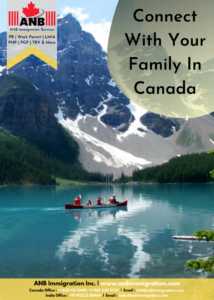Reunite With Family In Canada

If you have family in Canada, you may be exempt from coronavirus-related travel restrictions. You may even be allowed to reunite with your family members who are temporary residents in Canada. Immigration, Refugees and Citizenship Canada (IRCC) has policies in place to address family separation. However, there are some conditions that affect foreign nationals’ ability to travel, even to see family.
All non-essential travelers to Canada are subject to coronavirus-related public health measures. When you get to the border, you will need to show a negative COVID-19 test. Before you visit family, you will need to quarantine for 14 days.
If you are travelling by plane, you will have to stay in a government-approved hotel while you wait on the results of a COVID-19 test. This could be up to three days, and the fees are not refundable.
Here are some of the other conditions depending on your relation to your in-Canada relative, and their immigration status. Immediate family members of Canadian citizens or permanent residents
- If you are an immediate family member of a Canadian citizen or permanent resident and you wish to come to Canada to reunite with your family, you must plan to stay in Canada for 15 days or more. Immediate family members have the following categorization :
- A spouse or common-law partner;
- A dependent child;
- A dependent child of a dependent child;
- A parent or step-parent;
- A guardian or tutor.
In addition, however, you must also have written authorization to travel from IRCC, even if you are travelling from the U.S. The authorization can be sought here authorization and statutory declaration form.
The next step is for you to sign this form. Your family member must also sign the form by solemn declaration (in front of a Canadian official legally authorized to receive one).
You must then request the written authorization. To do this, you will need the completed form as well as proof that your family member in Canada is indeed a citizen or permanent resident.
